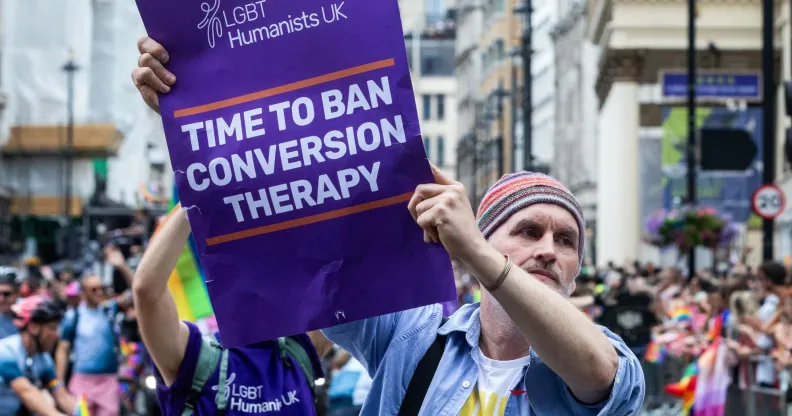The UK Parliament is set to debate a significant bill aiming to ban conversion therapy, a move that has rekindled hope among LGBTQ+ rights advocates. The bill, titled “Conversion Therapy Prohibition (Sexual Orientation and Gender Identity),” bypassed mention in the King’s Speech but has garnered attention due to its potential impact on LGBTQ+ rights.
The Bill’s Introduction and Advocacy Support
Introduced by Baroness Burt of Solihull, vice-chair of the All-Party Parliamentary Humanist Group, the bill has been positioned first in the House of Lords ballot. If passed, it would enforce a comprehensive ban on conversion therapy practices, which are widely denounced for their harmful attempts to forcibly change an individual’s sexuality or gender identity.
The Long Road to Legislation
The journey to ban conversion therapy in the UK has been a protracted one. The commitment to outlaw these practices was first made five years ago under former Prime Minister Theresa May. However, the issue had been sidelined in subsequent government agendas, including in the first King’s Speech by King Charles III. Kathy Riddick, Director of Public Affairs and Policy at Humanist UK, expressed both relief and urgency at the bill’s progress, noting the dire consequences of conversion therapy on mental health.
The Global Context and Urgent Need for Action
As conversion therapy practices have been banned in several other countries, the UK’s delay in addressing this issue has been a point of contention for LGBTQ+ rights groups. The bill’s debate in Parliament represents a critical opportunity to align the UK with global standards in protecting LGBTQ+ rights.
Hopes for Parliamentary Support and Action
The introduction of the bill by Baroness Burt has been hailed as a significant step towards addressing the longstanding issue. LGBTQ+ rights groups and advocates are now looking to Parliamentarians across both houses to support and expedite the passing of this crucial legislation, signaling a potential turning point in the fight against conversion therapy and the protection of LGBTQ+ individuals in the UK.

